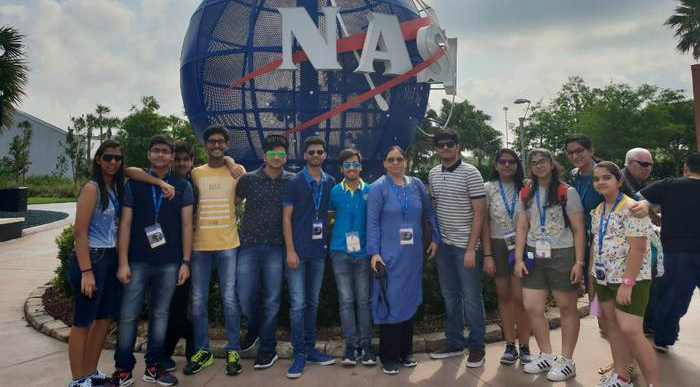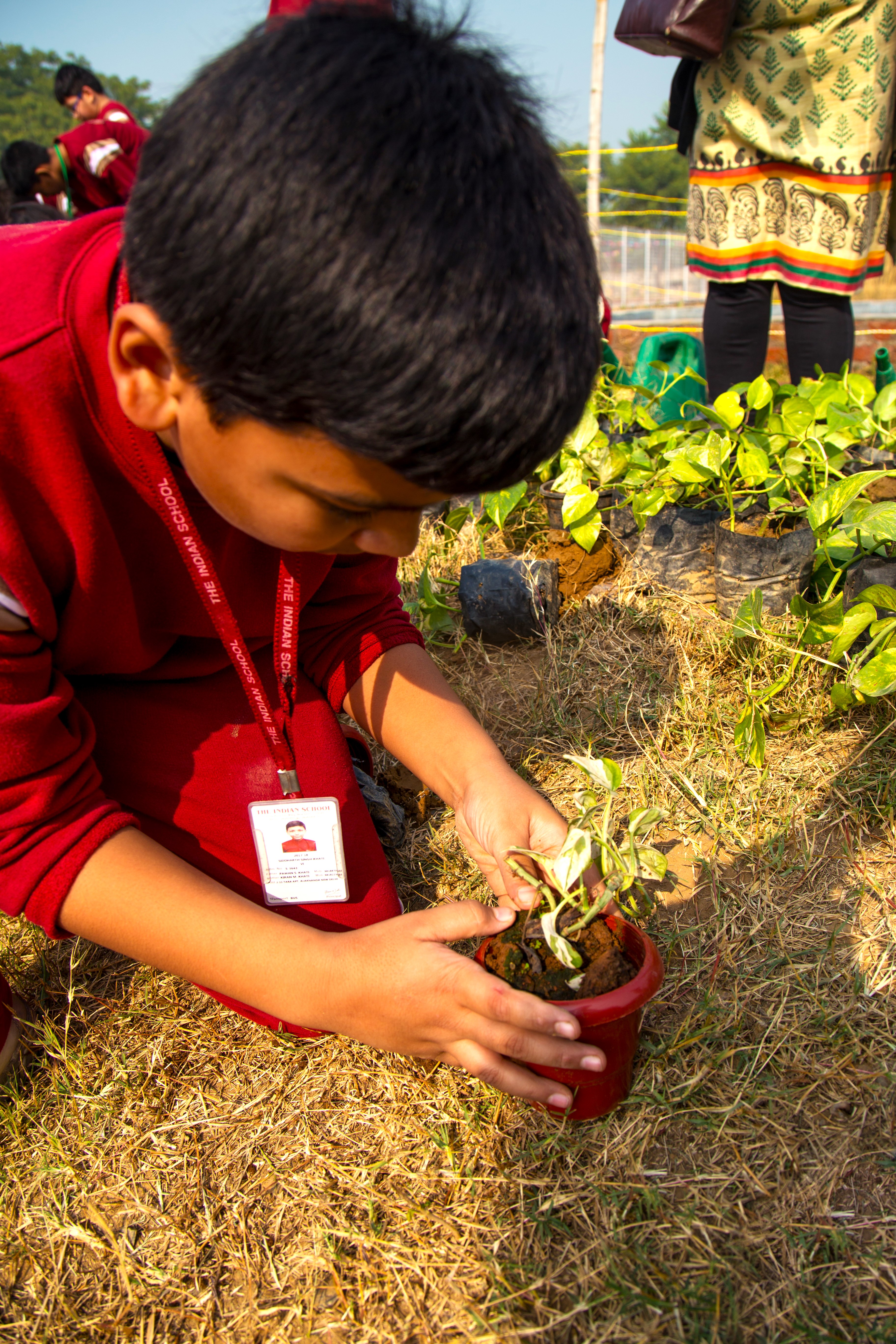Beyond Classrooms

Our Best Practices include Theme Learning, Discovery Learning, Spiral Learning, Circle Time, Summer Internships, the Citizenship Programme and sharing our Intellectual and Cultural Capital with other schools in the country.
We strive to achieve excellence in learning both within and beyond the classroom through these best practices which we have developed in our School.
Circle Time with the Chairman is a time for students to voice and share their concerns on wide-ranging topics. Chosen by students, the topics range from Abraham Lincoln, the Asian Games, and Democracy to intolerance, gender bias, pollution, cleanliness in the public domain, the G20 Summit 2023 and COP28.

CHARIMAN INTERACTING WITH STUDENTS
At our Summer Internship programmes, senior students get an opportunity to work with an industry, NGO, chartered accountancy firm, hospital etc to help them become contributive citizens.
The new term beginning in April sees children being regaled with tales of Lord Mahavira and Buddha, Good Friday and Eid, interwoven with Sanskaras of ahimsa and non-violence, thus laying the foundation for making our country a role model for multicultural democracy. Baisakhi is also celebrated, by turn, as it is observed in different parts of India – Bihu in Assam, Ugadi in Andhra Pradesh and so on.

A PLANT WILL GROW...
August sees the students singing Raag Malhaar in an Inter-school Music & Dance Competition which invokes the rain god and was originally started to celebrate the school’s own water harvesting project.
Parents, Grandparents and other members of the family are regularly invited to school functions. Independence Day and Raksha Bandhan are celebrated together. The hoisting of our national flag is accompanied by a Science Exhibition and the tying of rakhis not only by the girls to the boys but also the other way round.
We believe that both technological progress and an equal acceptance of the girl child are essential prerequisites for an modern India. The rakhis made in the three colours of our national flag symbolise not merely national harmony but also convey gender equality. By tying rakhis to each other, we are also recalling a piece of our history which was the early years of our independence struggle. Gurudev Rabindranath Tagore used this custom of rakhi tying to unite the people of this country to protest against Lord Curzon’s partition of Bengal in 1905.
Our annual inter-school competitions/workshops have become a regular feature on the Delhi School circuit and draw in the best of schools to our doors.















